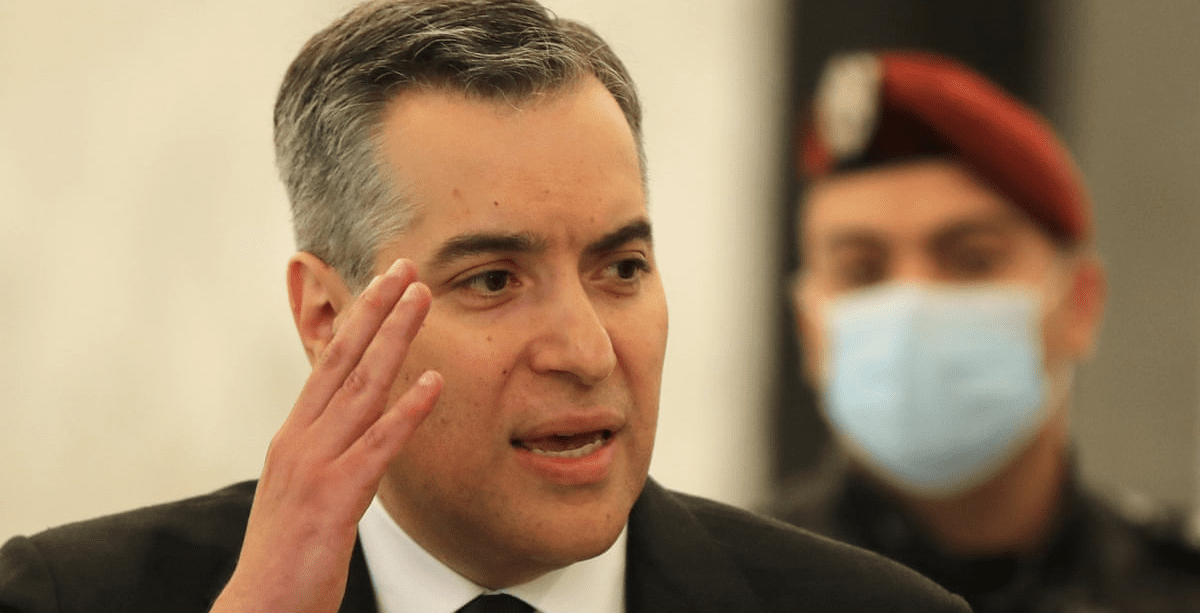A month after the resignation of Hassan Diab, president Aoun announced Mustapha Adib as Lebanon’s Prime Minister, after he obtained the votes of the majority during binding parliamentary consultations held at the Baabda Palace, on August 31st.
Days earlier when his name came up as the main, and probably only, candidate of the currently ruling politicians, it infuriated the Lebanese people for many reasons, most particularly, because “he’s one of them,” as they are saying.
For the Lebanese nation, it means one thing: Nothing has changed. The same political body that ruined Lebanon just brought one of their own. In fact, he was nominated by Saad Hariri and the political parties opposing the revolution: Amal, Hezbollah, and Tayyar (FPM).
Who is Mustapha Adib? Most Lebanese haven’t heard of him unless they reside in Germany and had to deal with him as their ambassador. Their previous comments found on Google reviews are no so brilliant.
Mustapha Adib is a native of Tripoli, north Lebanon. He moved to France to earn a doctorate in Law and Political Science and began his career by teaching in various Lebanese and French universities.
In 2000, he started teaching at the Military College in Beirut and was later appointed as an advisor to his close friend and Lebanon’s former Prime Minister, Najib Mikati.
In 2005 and 2006, Adib represented Mikati in front of the committee in charge of the new electoral law and partook in the decision making.
Later in 2010 and 2011, he worked as a full-time professor at the Lebanese University and was appointed as Mikati’s Chief of Cabinet.
And, since 2013, Adib has been Lebanon’s ambassador in Germany until his now-nomination as Lebanon’s newest Prime Minister.
The Lebanese people surely reacted ever since his name came up as a candidate proposed by the trio Amal-Tayyar-Hezbollah. They expressed their anger and disagreement on social media as in the streets.
Cities’ roads around Lebanon were blocked, including in Adib’s native city Tripoli, with angry protesters expressing their concerns and refusing the decision.
On social media, the people’s refusal wasn’t less angry and bitter.
Some highlighted how negligent the former ambassador was, showing the Google reviews on the Lebanese Embassy in Germany.
Many of these 1-star reviews called out the Lebanese Embassy in Germany on being negligent and the staff ignoring the expats’ calls.
2 weeks after unanswered calls and emails, this Twitter user had to get the Ambassador’s phone number through wasta so that her problem gets solved.
Many photos circulated the internet with pictures of the new premier being associated with several controversial political parties, such as Hezbollah and Amal.
While many are claiming Adib to be pro Hezbollah and Amal, many pointed out that, as an ambassador, it was his job to represent Lebanon in Germany during political ceremonies.
Many jokingly pointed out the physical similarities between Adib and former PM Diab, claiming that Adib will be another “version” of Hassan Diab.
Citizens have lost hope in the Lebanese system and its authoritarian sectarian politicians and aren’t willing to forgive and forget anytime soon what happened to Beirut and its residents.
Most don’t expect much from this new PM and the government body he will select, because he was brought in by the same reigning political leaders and are anticipating nothing but failure and corruption.
Within the hour of his appointment, the people of Gemmayzeh, one of the most blast-ravaged districts of Beirut, confronted him, yelling that they don’t want him and that he doesn’t represent them.
To someone asking him if he is from the people or the sulta, he answered, “from the people,” not so convincingly though.
According to a tweet by user Joelle Boutros, Dr. Adib “refused to do a PCR test before coming to Lebanon two days earlier, and made some phone calls to be able to board the plane without anyone giving him a headache.”
She also commented that he was nominated by Saad Hariri, and agreed on by the political trio Amal, Hezbollah, and Tayyar.
The people of Lebanon haven’t been given justice yet for the explosion that shattered the capital nor has any of the ruling politicians who knew about the ammonium nitrate been held accountable.
And these same people continue to rule…

















